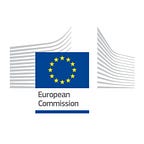Helmut Kohl: his legacy and his friends
Helmut Kohl put personal friendship at the heart of his political and diplomatic relations. This is how he gained his colleagues’ trust and managed to achieve monumental political goals — from German reunification to European economic integration.
In this gallery, we recall the milestones of Chancellor Kohl’s political career and the international leaders he has encountered along the way.
Helmut Kohl and Konrad Adenauer
Helmut Kohl spent his entire political life in the same political party with Konrad Adenauer and shared the same goal of his mentor: rebuilding Germany within a united Europe after World War II.
Helmut Kohl and François Mitterrand: “le geste de Verdun”
One of Helmut’s Kohl greatest legacies is the reconciliation with France, the seed from which European integration grew. In 1984, the German Chancellor and French President Mitterrand stood before the Douaumont memorial of soldiers, 70 years after the beginning of World War I. During the national anthems, the two decided to break protocol and hold hands. With this powerful gesture of reconciliation, a long-lasting French-German relationship was forged.
Helmut Kohl and Jacques Delors: the way towards reunifying Germany
The first steps of our economic and monetary union have another notable French-German duo. Helmut Kohl along with former president of the Commission Jacques Delors were co-authors of the currency we now use. During the European summit in Strasbourg, on 8 December 1989, the German Chancellor agreed to give up the greatest symbol of Germany’s post-war economic success: the Mark. He gained the trust of European leaders who made a declaration in favour of German reunification. “Since I have worked with him, I can measure the immensity of the goals he has achieved”, said Delors after Kohl passed away.
Helmut Kohl and Felipe González
Former Spanish Prime Minister Felipe González recalled those crucial moments in Strasbourg: “[Kohl] accepted to exchange the mark for the euro and knew that by doing that he risked losing the elections.”, he wrote in El Pais. He added that Kohl played a crucial role in pushing Spain’s accession to the EU and in all the great European achievements Spain had between 1985 and 1995. González summarises Helmut Kohl’s diplomatic skills: “He gave great importance to personal friendship in political relationships”.
Germany reunified
Helmut Kohl was aware that only with the support of the Soviet Union and the United States could Germany be reunified. For this reason, he built a close relationship with Soviet President Mikhail Gorbachev and US President George Bush the elder. Kohl earned trust through faithful support for NATO, fundamental in overcoming other nations’ fears of a too-powerful reunified Germany. He also committed in investing billions of dollars in order to stabilise Russia after the fall of the Soviet Bloc.
Helut Kohl and Angela Merkel
Helmut Kohl held the office of German Chancellor from 1982 to 1998. He was mentor to a young woman, Angela Merkel, who came to power in the same position in 2005. “The loss of Helmut Kohl is the loss of a great German and a great European,” wrote Merkel in a condolence book at the Federal Chancellery. “He rendered exceptional service in reuniting our country and in unifying Europe.” Helmut Kohl’s actions, said Angela Merkel, were shaped by the two most crucial challenges that have faced German politics over the last decades — “the reunification of our country and the unifying of Europe. Helmut Kohl understood that the two were inextricably linked and he rendered outstanding service to both these goals.”
Helmut Kohl and Bill Clinton
Helmut Kohl had disciples on both sides of the Atlantic. Bill Clinton honoured him with the Presidential Medal of Freedom in 1999. “His visionary leadership prepared Germany and all of Europe for the 21st century”, wrote the former US President in a statement. “I will never forget walking with him through the Brandenburg Gate in 1994 for a large rally on the eastern side, and seeing genuine hope in the eyes of tens of thousands of young people. I knew at that moment that Helmut Kohl was the man who could help them realize their dreams. History continues to prove that he delivered.”
Helmut Kohl and Jean-Claude Juncker
On June 16, EU Commission President Jean-Claude Juncker wrote: “Helmut’s death hurts me deeply. My mentor, my friend, the very essence of Europe, he will be greatly, greatly missed.” Juncker served as Luxembourg’s prime minister during Kohl’s tenure. In this picture, they speak during the European Council hosted by Luxembourg in 1997.
Helmut Kohl and the euro
“The euro is one of Europe’s great responses to the globalization of the world economy and to the increasingly strong global competition between countries and regions”, said Helmut Kohl in his speech during the inauguration of the European Central Bank in Frankfurt (30 June 1998). “A stable euro has good chances of becoming a serious alternative to the US dollar”, he added. Further developments of the Eurozone proved he was right. In the picture above, he participates in the special European Council on 3 May 1998. On that day, European leaders decided that 11 Member States satisfy conditions for adoption of the single currency on 1 January 1999.
Helmut Kohl died on 16 June 2017. A European Ceremony of Honour will commemorate his legacy in the European Parliament in Strasbourg from 11:00 a.m. on Saturday 1 July. Speakers at the Ceremony will include European Parliament President Antonio Tajani, European Council President Donald Tusk, European Commission President Jean-Claude Juncker, German Chancellor Angela Merkel, French President Emmanuel Macron and former President of the United States Bill Clinton. The casket holding the remains of Helmut Kohl will lie in state covered by a European flag.
